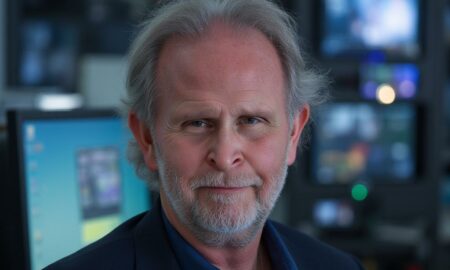 Today we’d like to introduce you to Justin McGee.
Today we’d like to introduce you to Justin McGee.
Justin, can you briefly walk us through your story – how you started and how you got to where you are today.
Athletics and coaching has been a big part of my life. Going all the way back to 6th grade when I was a water boy for our high school football team, I have been drawn to institutional sports.
While I have had success on the field as both a player and as a coach, the thrill of playoff victories and district championships aren’t the fuel for my continued participation in athletics.
In high school, I had a football coach, Matthew Hamilton, who approached coaching in a unique way. Yes, he was technically competent and challenged us to be our best selves on the field, but interspersed with the skills he taught us were Monday night dinners with six or so players and himself at Olive Garden or evenings grilling out on the rooftop of his apartment complex. These moments together included chatter about the upcoming game, but often evolved into conversations about life, relationships, and faith.
His genuine love and care for us transformed my life. I was an all-state player under his tutelage, but I became something more through our relationship: a human being striving to love God and love others in a way I never knew was possible. These two things — once seemingly antithetical to each other — were actually uniquely intertwined. Coach Hamilton cared more about us as human beings, and in doing so, we excelled on the field. He prioritized our holistic development first and foremost, and what followed? Success on the field. A paradox for sure.
This experience with Coach Hamilton began to shape my understanding of what it means to coach Incarnationally. Throughout college, I had the opportunity to coach at my alma mater and practice and develop this coaching vocation for myself, and I have coached nearly every year since.
First hand I have been blessed to be used by God to help coaches and athletes re-imagine what it means to make evident the way of Jesus in athletics — whether it was through mentoring news coaches who were unfamiliar with our community and goals or helping athletes develop a growth mindset through the use of relationships and character or spiritual development curriculum. It has been amazing to see how when you lean into the hearts and souls of athletes they buy into your program, your hopes for them, and the standards you place on the team. In the process of this, they individually and collectively grow — both athletically and personally.
Recently, I was asked to step into a program half-way through the season to help keep a ship of a program from sinking. Kids were discouraged, and some on the verge of quitting or transferring schools. The mindset of some (not all!) of the coaches was to win at all costs, and in the process, 16 and 17 years old kids were being discarded. Our head coach, at one point, even told the athletes he would never know their names and to get over it and that the only way we would win is if we brought in new players.
Coach Hamilton represented something that I call “with-ness”, which is when a coach embodies the life of Jesus by coming alongside their athletes instead of lording their authority over and above them. Sadly, this wasn’t the culture set by the head coach. It showed in the morale of the players and some of the coaches.
The application of Incarnational Coaching in the lives of the athletes I coached in that program, and the success they individually had throughout the remainder of the season (not just on the field, but in how they led, worked, and never gave up in a win-less season), made me realize that there is power in all that I have learned about coaching since I was a measly 6th grader serving water to the athletes and coaches on Friday nights.
So, I began to dream about what it would look like to take this vision to other coaches, teams, and schools, and through that process, developed Incarnational Coaching. If the youth sports world is dominated by coaches and communities who seek the almighty victory over and above the formation of lives, Incarnational Coaching is a salve to a system that is wounded — especially among schools and programs that hitch their wagon upon the name of Jesus.
Overall, has it been relatively smooth? If not, what were some of the struggles along the way?
The initial reception of Incarnational Coaching has been more positive than I imagined. When you begin a new endeavor — especially one centered around ideas/philosophies/etc. — you never know how it will be received. Whether I get business from a school/team or not, though, nearly everyone I talk to is excited about, and interested in, the concepts I present to them. I believe coaches thirst for resources to help them personally grow, so they can effectively lead their athletes and programs, and this is what I hope and pray to present them with.
The biggest struggle is simply getting the word out about Incarnational Coaching. Social media and referrals has been a boon in this regard, but I’m still developing effective ways to spread the word of Incarnational Coaching in broader and more compelling ways.
Incarnational Coaching – what should we know? What do you do best? What sets you apart from the competition?
Our mission at Incarnational Coaching is simple: to make evident the way of Jesus in athletics. Therefore, we are in the business of formation.
First and foremost, through the grace and mercy of God, we form the hearts and loves of coaches and athletic directors. Through the use of seminars for professional development and coaches bible studies, we hope to show them what it means to coach incarnationally — meaning, how to follow in the footsteps of Jesus in how they coach, relate with their staff, players, and community, etc. The push in education right now, which is correct and good, is the wellness of students and athletes. But wellness doesn’t occur on the micro level until it is achieved on the macro level. This is why we focus on the formation of coaches. Once their imagination is shaped and lives are personally changed, then they take this faithful way of attending to their vocation into the culture of their teams, and student wellness is achieved.
Secondly, we create character and leadership development curriculum as well as spiritual formation curriculum to help coaches institute Incarnational Coaching into the life of their teams.
What makes the seminars, bible studies, and student curriculum unique is that it is all customized to fit the context and settings of the schools. We understand that a school in North Dallas is different culturally from a school in West Fort Worth, and a school in West Fort Worth is different from a school in rural East Texas. How Incarnational Coaching is communicated to the coaches and athletes across contexts shifts and adapts to fit each culture so that the most people are impacted by the message we have been called to share. Most organizations that do what we do have a set curriculum/package that a school can purchase. While it may be useful, it has its limitations because it isn’t tailored to the school.
With us, our core beliefs are infused into everything that we do, but the language we use to communicate them are different depending upon who we work with. St. Paul talks about this in 1 Corinthians, that he became “all things to all people so that by all possible means I might save some. I do all this for the sake of the gospel that I may share in its blessings.” It is our hope to embody this through the customization of our materials for individual schools.
We also consult with coaches on a 1-on-1 level to help guide them more directly in what it looks like to coach incarnationally. This includes multiple conversations, observations of practices/games/meetings, goal setting, etc.
Lastly, we provide seminars for the larger community of schools and youth programs — parents, youth coaches, and institutions themselves to explain to them the importance of Incarnational Coaching as well as training how they can be Incarnational Communities.
In the end our heart is to invest in the schools and programs we work with. Ideally, we don’t just drop in for a 3 hour seminar, dispense some information, and leave. We want to know the people and the culture of our schools intimately, so we can be used by Christ to transform the lives of the coaches, athletes, and communities. Just as we desire our coaches to be “with” their athletes, we want to do the same for the schools and teams we partner with.
What is “success” or “successful” for you?
There are a few ways to we define success.
Our ultimate goal — our telos — is that through the transformation of coaches, coaches are then able to create a culture, an experience, in the life of their teams that enable athletes to look more like Jesus when they leave their program. In my experience as a coach and in my observations of other coaches, those who prioritize this in their teams create a culture where every single athlete — whether they are the star player or a role player — is loved and encounters Christ in a meaningful way. When the weakest athlete is valued as highly as the strongest, you have created an Incarnational Culture.
Yet, to be an Incarnational Coach, you also have to know your stuff. You need to be able to competently coach your skills. When this is wedded with ultimate goal of Incarnational Coaching, your athletes and teams reach their ceiling and achieve more than you ever could have imagined.
Incarnational Coaching doesn’t guarantee championships, but if these two things are faithfully pursued and present, there should be growth on and off the field.
A few examples of a successful program that reflects Incarnational Coaching…
Recently, I created an alumni flag football event for my alma mater (I also coached there). We had players show up to the event from the last 18 years of our program. At the event, there were former all-state players and players who rarely, if ever, saw the field as a varsity player. Why would the latter come? Because they were a part of a program that was Incarnational. They even shared with us at our luncheon after the event about the coaches who poured into their lives and believed in them as players and loved them as a human being, and how this has affected their marriages and child rearing.
I also coached a girl’s soccer team where we had a senior who never saw the field and even played some JV soccer that year. Yet, she invested in the lives of the underclassmen in such a way that during our wrap up meetings at the end of the season, multiple underclassmen mentioned their desire to be like her when they were to become upperclassmen. We ended up creating a weekly award the following years named after this athlete and gave any player who embodied the spirit of this senior a captain’s armband and the ability to be a captain for the game. The girls who weren’t captains began to serve and love their teammates in radical ways, and a family was built around the legacy of this senior. And what happened the year we began doing this? We beat a rival we hadn’t beaten in over ten years and made it to the state semi-finals.
The success wasn’t so much the outcome on the field; they will forget the details of those moments when they become adults. But, they will remember the love of their teammates and the fruit will be evident in their lives as citizens, wives, and mothers.
This is a successful program built on Incarnational Coaching.
Contact Info:
- Website: www.incarnationalcoaching.com
- Phone: (972) 729-9058
- Email: justin@incarnationalcoaching.com
- Instagram: https://www.instagram.com/incarnationalcoaching/
- Facebook: https://www.facebook.com/Incarnational-Coaching-113947170307007
- Twitter: https://twitter.com/IncarnationalC
- Other: https://www.linkedin.com/company/65834270/






 Image Credit:
Image Credit:
The jumping photo with coach and athlete: Michael Chan. The other photos: Jeffrey McWhorter.
Suggest a story: VoyageDallas is built on recommendations from the community; it’s how we uncover hidden gems, so if you or someone you know deserves recognition please let us know here.

















